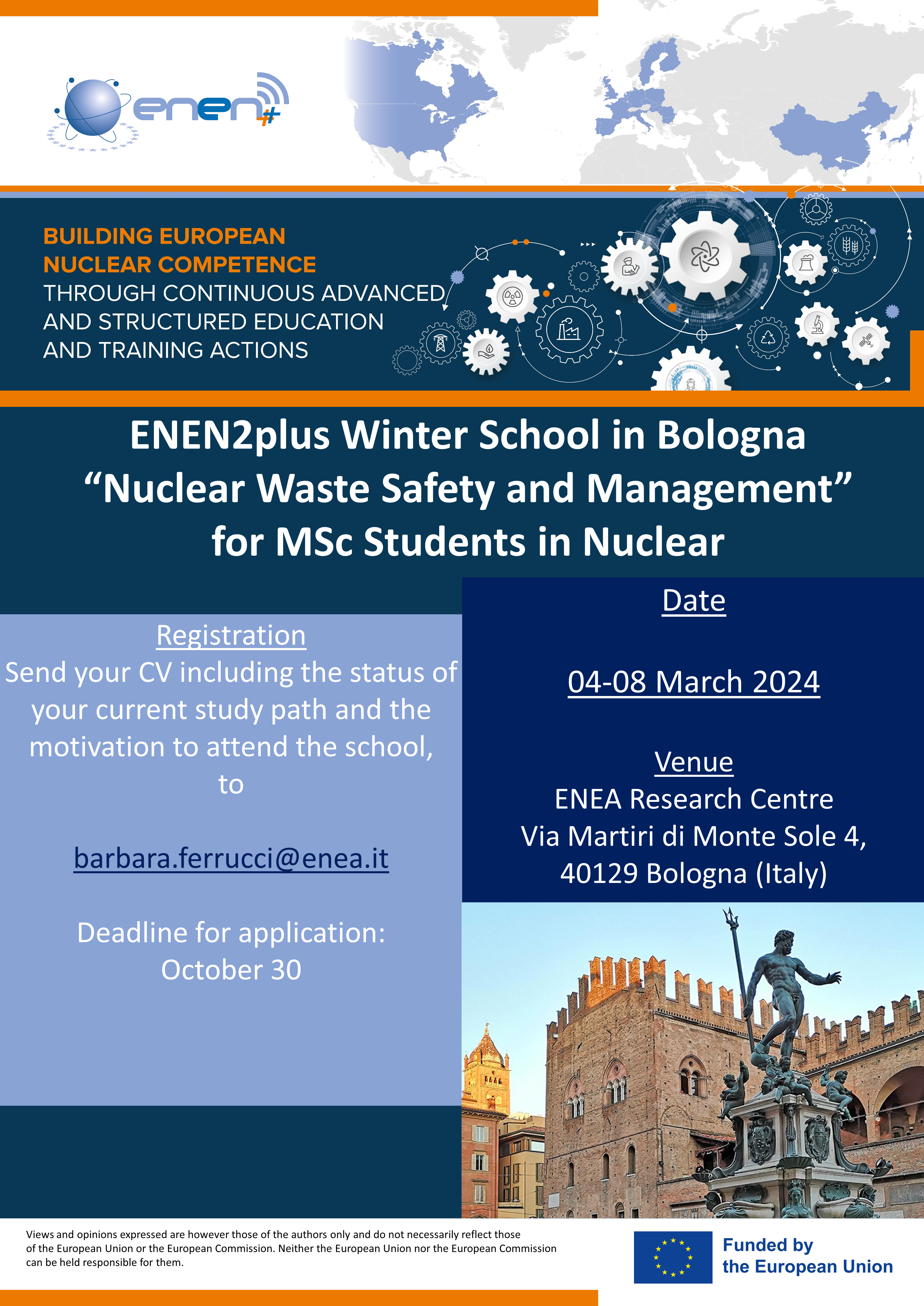The school intends to provide a complete perspective of fundamental aspects of nuclear waste management and disposal solutions and issues ranging from radioprotection to management issues and final disposal. The lectures will also encompass the norms and safety standards in the nuclear field, and the impact of nuclear activities on the environment and the population, including environmental radiation monitoring and risk and safety assessments for both the population and the ecosystem. The objective is to give to te students a right background allowing them to be fully engaged in the training session focused on post-closure safety assessment of nuclear waste disposal facilities. Starting from the the concept of a ‘safety case’ relating to radioactive waste disposal and its constituent parts the training sessione will cover all aspects of planning and managing nuclear waste and a disposal system. The objective is to provide a walk-through best international practice for post-closure safety assessment, signposting guidance and providing examples. This will include exercises in identifying scenarios and developing associated conceptual models and hands-on sessions with the AMBER compartment modelling tool. Students will be guided through running calculations, to exploring a model for near-surface disposal including wastes, the engineered facility, geosphere and biosphere, exploring results and making changes to explore scenario, model and parameter uncertainties.
Program Outline
The school consists of five days of different sessions with lectures in the in the following topics divided into three theoretical sessions and one practical session:
Session-1 (day 1): Radiation Protection and Safety in the Nuclear Field.
Participants will learn about radiation types, effects, and shielding. They will explore norms, safety standards, and licensing processes. Environmental protection, emergency preparedness, and ethical considerations are emphasized. Overall, they will gain comprehensive knowledge to ensure a safer and sustainable nuclear industry.
Session 2 (day 2): Nuclear Fuel Cycle and Waste Management.
Participants will learn the nuclear fuel cycle stages, including uranium mining, fuel fabrication, reactor utilization, and waste management, to gain a comprehensive understanding of the entire process. They will understand various types of nuclear waste and their hazards and conditioning treatment methods like vitrification and encapsulation for safe storage and disposal. Participants gain knowledge for responsible and secure nuclear waste management.
Session 3 (day 3): Temporary Storage and Final Disposal of Nuclear Waste.
Participants will learn about temporary storage facilities and safety considerations for holding radioactive waste. They explore the concept of near surface and deep geological repositories for permanent disposal, emphasizing isolation and the multi-barrier concept. The session covers international best practices, regulations, and ethical aspects. Participants gain insights into public engagement and transparent decision-making.
Training session (day 4-5): Comprehensive Post-Closure Safety Assessment, Compartment Modeling for Radioactive Waste Disposal and AMBER code hands-on.
Participants will learn about post-closure safety assessment of a radioactive waste disposal site and the compartment modeling approach using the AMBER code. Participants will learn the concept of a ‘safety case,’ including planning, managing, and radioactive waste and the disposal system, and also the compartment modeling methodology, applied to nuclear waste, repository, geosphere, and biosphere. Participants will have hands-on experience using the AMBER code to assess post-closure safety, exploring scenarios, model equations, and parameter uncertainties.

